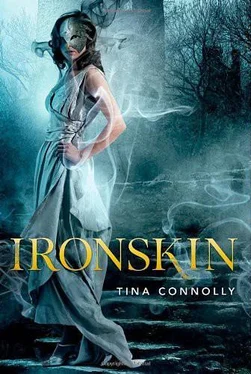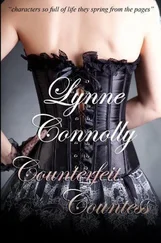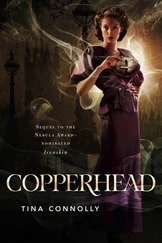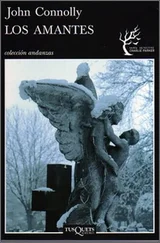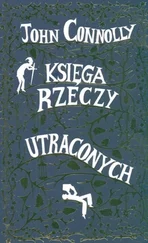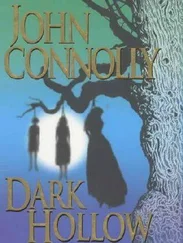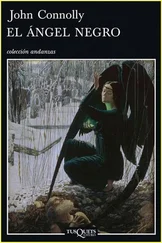From outside came Nina’s voice, shouting no, no, no, and there was nothing Jane could do, for the compulsion still pulled her like a string pulls a top to its apex, plucking her with the fey call, and with her own human guilt, for despite not adoring Nina she did not want her to be consumed by the Fey Queen.
The compulsion died even as the door opened and Poule slid around it and into the foyer.
“Nina…,” said Jane.
“You’re not to go out there, you hear?” said Poule. “For all she has Nina, she’d drop her like hot iron if she could have you.”
“Just jump from one to the next?” said Jane. Who could stand against that?
“I don’t know,” said Poule. “I’ve been turning over the event with Blanche and I think perhaps the fey are stuck in a body till it dies. That’s why that other fey tried to force Blanche to slash her wrists with a silver knife. It knew it was discovered and was trying to win free.”
But the Queen had entered Dorie, and left, thought Jane. She entered me, while I was asleep. Jane could not quite buy Poule’s slim hope.
“It’s curtains for Nina, but at least the Queen’s trapped there for a while,” continued Poule. “She’ll either have to use the body or destroy it, and she’ll have to get full control of it to destroy it. Nina’s stronger than Blanche ever was.”
But Jane slumped to the floor, hardly listening.
“He would’ve given me to her like … like a thing, a toy, a body for her. For her to be with him.”
Poule’s eyes were gentle. “You can’t be trusting anything a fey says.”
“He assumed no one would miss me. Like the village girl.” She rounded on Poule. “ That must have been true. Dorie had to be born out of a human form. How did it happen? Just like she said? Is that who he’s been paying off all these years?” A thought flashed through her mind. “That man at the carriage house that day—the girl’s father, it must have been.”
“Before my time,” said Poule. “Let’s have you lie down in your room. You can talk to him when he returns from the forest.”
Jane stumbled to her feet. “I can’t see him. I can’t see him ever again.” Her fingers flew to the edges of the mask. “And this face, this face, get it off of me—”
Poule clasped her hands, pulled them away. Worry was in her voice as she said, “You’ll hurt yourself. Don’t do that.”
“But I can’t have it, I can’t.”
“I’ll think of something,” promised Poule. “Or Edward will fix it himself.”
But that was the wrong thing for Poule to say if she wanted Jane to calm. She drew back from Poule, her eyes flooding. “I have to go,” she said. “I have to go.”
“Jane. Jane!”
And she ran from her, ran out the side door to where the party guests were hurriedly throwing their trunks and dresses willy-nilly into their carriages and motorcars, rousting their idle groomsmen and chauffeurs, fleeing.
Jane jumped onto the running board of the Davenports’ motorcar. It was over-full, stuffed with the family and with another gentleman who had come by train and didn’t want to wait for a hired hand to take him to the station. “Please,” said Jane. “Are you going to the city? Please, you must take me with you.”
“There’s no room,” said the mother, but the elder Miss Davenport, the one who had let Dorie go into the forest, looked into Jane’s clay-ringed eyes and said “Squeeze in here.”
Jane wasted no time stuffing herself in, could not even find it in herself to care that she was half on top of the girl, pulled the door closed on their skirts as the motorcar was peeling out down the mud road and away, away from Edward.
* * *
The Davenports’ goodwill (or in the elder Miss Davenport’s case, guilt) extended only so far. Jane walked the fifty-three blocks from their house to Helen’s, alone with her thoughts. The afternoon sun was hot on her shoulders and the top of her head, and though she had nothing with her—not even money—she was also glad she had nothing to carry.
It felt quite strange to be on the streets without veil or mask. People stopped to look at her, and Jane was shocked over and over again to realize that they were staring because she was beautiful. She looked longingly at a roasted-chestnut stand as she passed, and a gentleman in a well-brushed suit ran after her and begged her to accept a striped bag full of them.
Jane accepted, an unfamiliar smile crossing her lips, a smile that apparently made the nice man blush and hurry off.
So she was not surprised when the butler at Helen’s house dropped his respectable demeanor and said, when she told him her name, “Never Helen’s sister?”
But she was shocked enough to drop the last of the chestnuts on Helen’s nice clean floor when she saw Helen.
Chalk it up to another thing she should’ve known, she thought. Helen’s hints about Alistair finding a solution, Edward mentioning that he’d seen her sister …
Helen was beautiful.
Fey beautiful.
Helen was having yet another party.
Jane sat curled on a couch in the front parlor, turning over the morning in her mind as servants whisked past, dusting and setting up flower vases and carrying beaten carpets in and out. The emerald horsehair couch was slick, and her feet kept sliding off.
The mask had not fully sealed at the edges, and it itched. It was not obvious unless you looked closely—with her fingers Jane felt the ridge running from her hairline around her jaw and back—but the itching, plus the knowledge of whose face it was, made her want to hook her nails under her chin and tear it away.
Which did not seem like the best idea.
There had been tons of houseguests at Helen’s wedding; today there was only one, and it was that Gertrude person who had told Jane to study art. She came in and out with Helen, who didn’t seem to want to be alone with Jane—or, even, alone.
At last when they came in again, Jane swung her feet to the floor and commanded them: “Sit.” She poured lukewarm tea from the service at her side and passed a cup to Helen.
“Ooh, aren’t we high and mighty,” said Gertrude, mimicking a city servant’s accent.
Jane was interested to realize she didn’t particularly care what Gertrude thought. That was a bit of a sea change, wasn’t it, how she had talked to the Miss Davenports, told Blanche Ingel what to do, made decisions.… She turned the full effect of her beautiful face on Gertrude and saw the other woman redden.
She could get used to this.
“Helen,” Jane said gently. “I have to talk to you about the … art … you received from Edward.”
“No art,” butted in Gertrude. “She went on holiday is all, don’t you see how relaxed she looks?”
Helen did not look relaxed to Jane’s informed eye; she looked peaked and jittery, a thin and frightened version of herself. She sneaked glances at Jane’s different, fey-enhanced face, in between looking sharply around the room as if someone were going to jump out from behind the curtains.
“I know the truth,” Jane said to Gertrude. “I’m sure you’ve been an asset at all Helen’s balls and parties, but you don’t need to cover up with me.”
“What parties?” said Gertrude in genuine confusion. “This is the first in a fortnight, and aren’t we excited? That’ll show them who was idiots to shun you.”
Jane looked at Helen, confused. No parties? But the letters had been of nothing else.
Helen dropped her head. “I need to talk to my sister,” she said to Gertrude. “I will come find you, after.”
“Oh,” said Gertrude. “Well, I—oh.”She rustled from the room while Helen plucked at her skirts, folded them into tiny bunches, dropped them again.
Читать дальше
